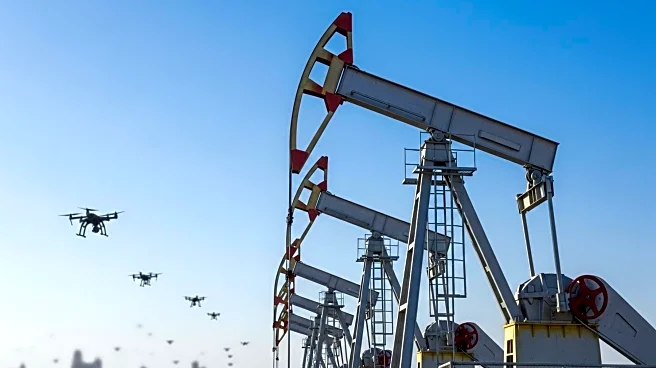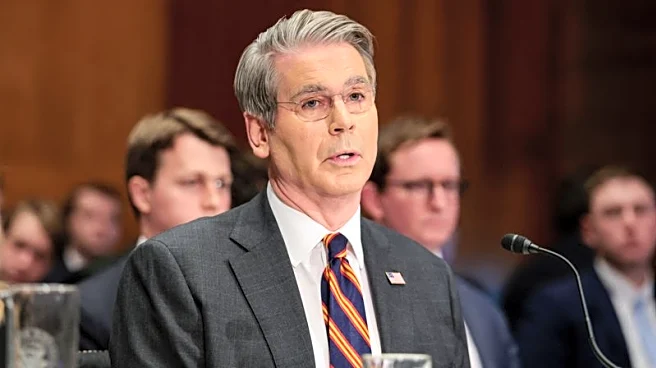What's Happening?
Russia is increasing its oil production to meet its OPEC+ quota, according to Russian Deputy Prime Minister Alexander Novak. In August, Russia's oil production was approximately 90,000 barrels per day below its quota, averaging 9.173 million barrels per day. The OPEC+ agreement allows Russia to produce 9.415 million barrels per day in September, including compensation for previous overproduction. Despite challenges, Russia is close to fulfilling its quota. The country has also extended a ban on gasoline exports and introduced a ban on diesel exports by non-producers until the end of the year. These measures come in response to fuel shortages exacerbated by intensified Ukrainian drone attacks on Russian refineries and energy infrastructure.
Why It's Important?
The increase in oil production is crucial for Russia to maintain its economic stability and fulfill international agreements. The bans on gasoline and diesel exports are significant as they aim to address domestic fuel shortages, which have been worsened by Ukrainian drone attacks. These attacks have targeted critical energy infrastructure, leading to temporary halts in crude intake at several refineries. The situation highlights the ongoing geopolitical tensions between Russia and Ukraine, impacting global energy markets and potentially influencing oil prices. Stakeholders in the energy sector, including OPEC+ members and global oil consumers, are closely monitoring these developments.
What's Next?
Russia's ability to sustain increased oil production amid infrastructure challenges will be pivotal in the coming months. The extended export bans may lead to further adjustments in domestic fuel policies. Additionally, the international community, particularly OPEC+ members, will likely continue to assess Russia's compliance with production quotas. The geopolitical dynamics between Russia and Ukraine could further influence energy strategies and market responses. Observers will be watching for any shifts in Russia's energy policies or retaliatory measures from Ukraine.
Beyond the Headlines
The ongoing conflict between Russia and Ukraine underscores the vulnerability of energy infrastructure to military actions. The drone attacks highlight the evolving nature of warfare and its impact on global energy security. This situation may prompt other nations to reassess their energy infrastructure's resilience and security measures. Furthermore, the geopolitical tensions could lead to broader discussions on energy independence and diversification strategies among affected countries.











